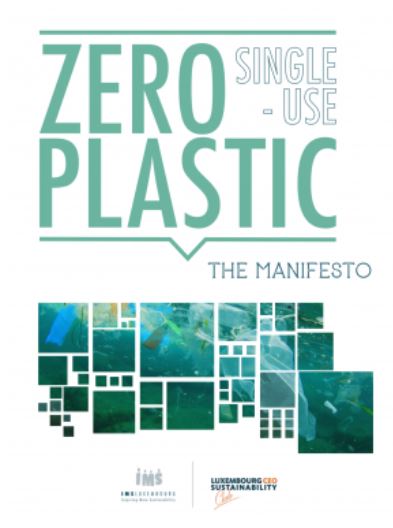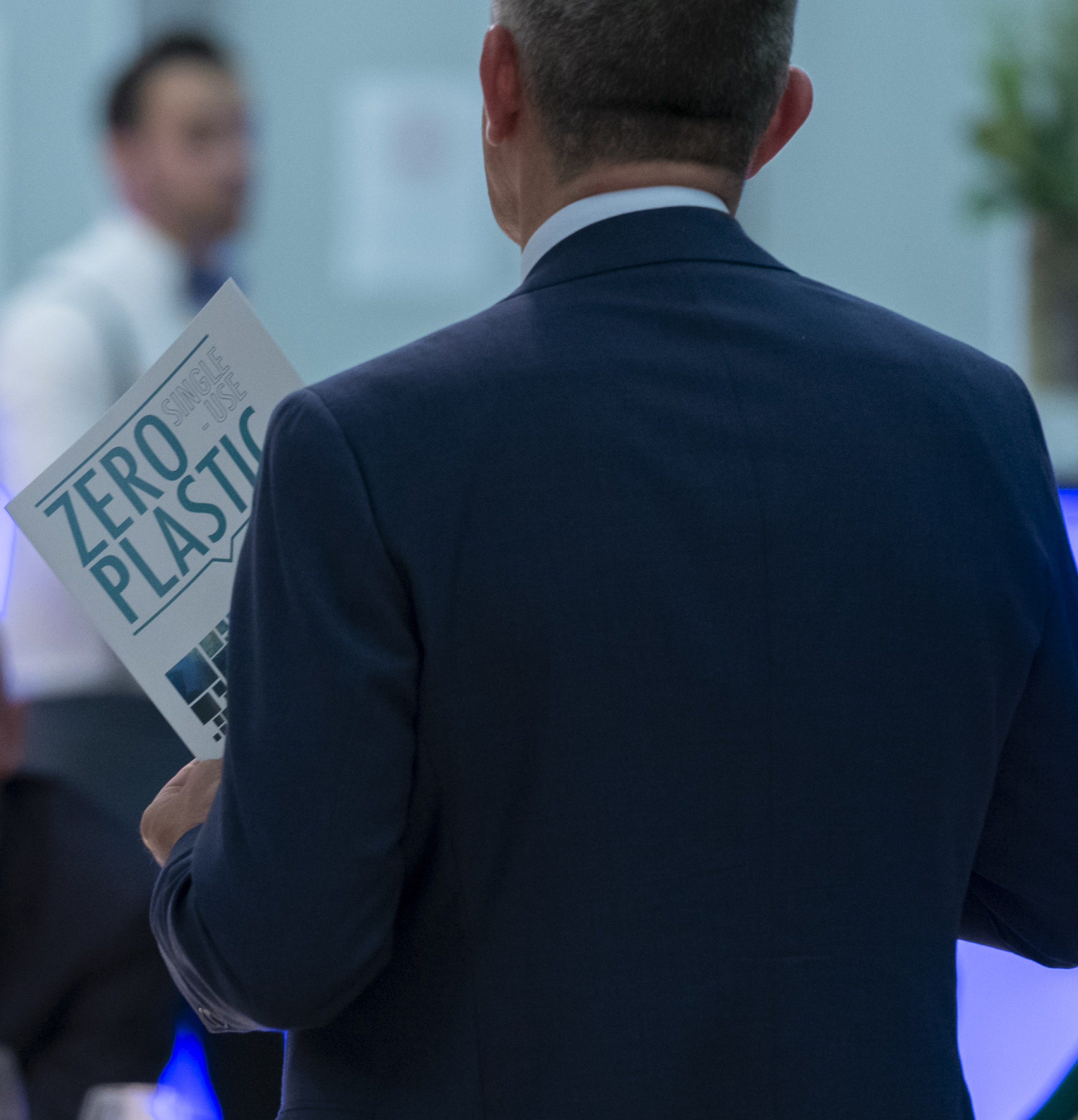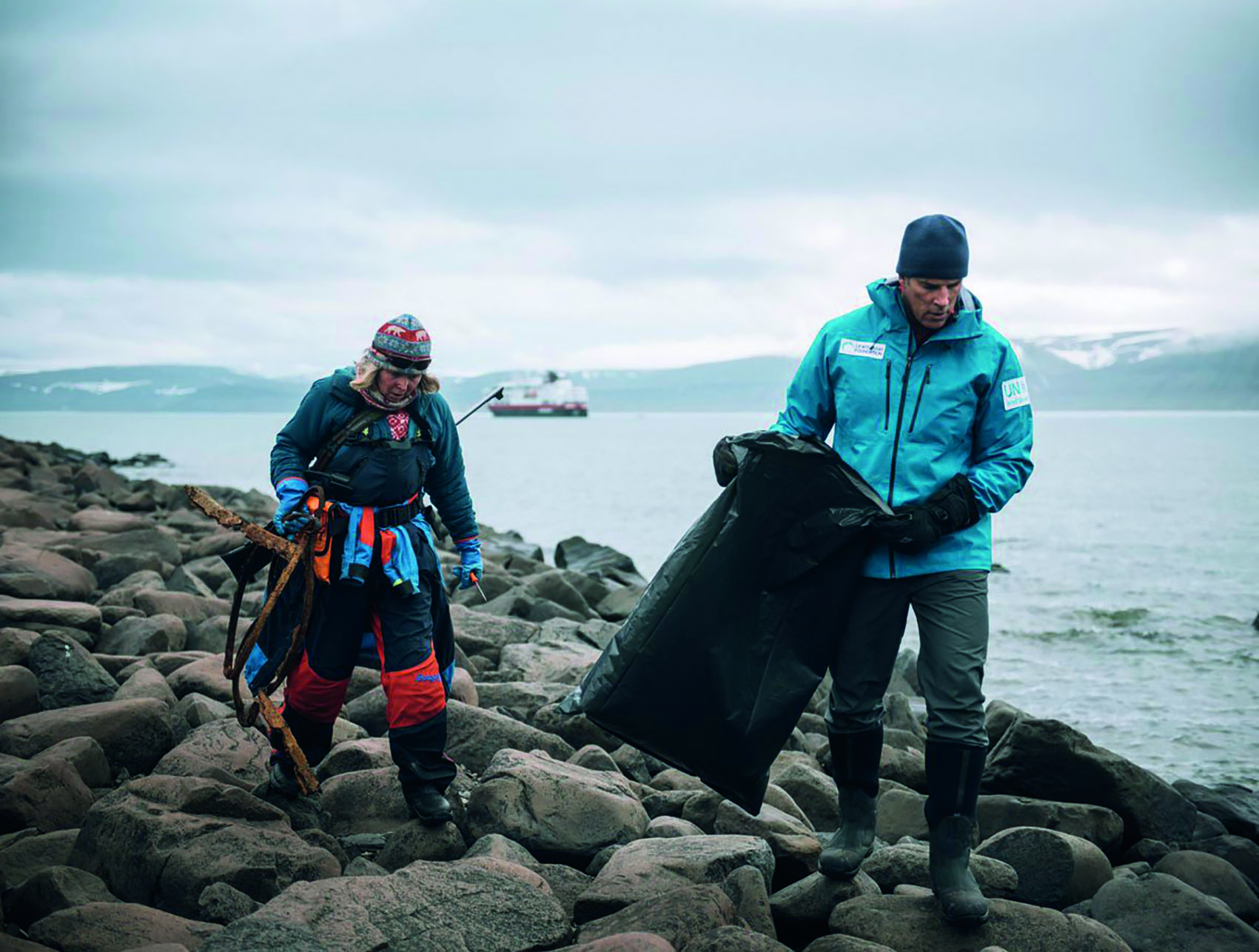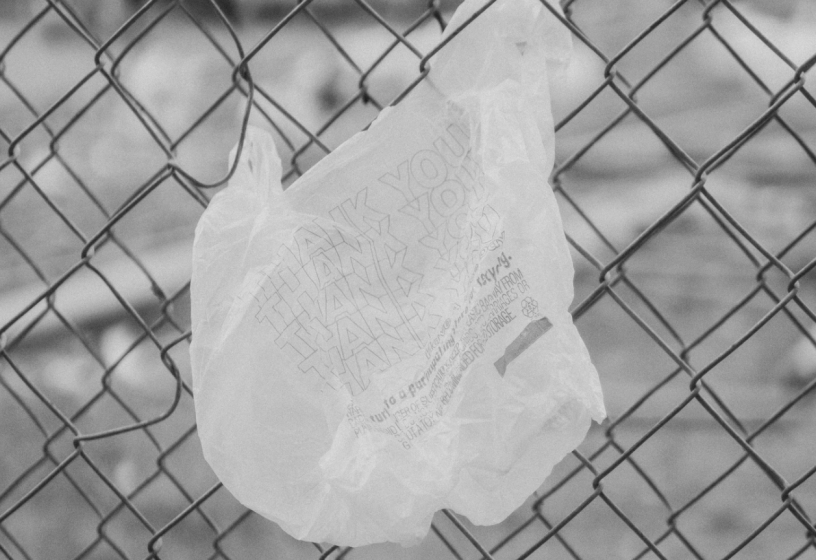Following a relatively brutal wakeup call about the current situation, the issue of single-use plastic is now regularly at the forefront of the media. The long-ignored impact is enormous, and we are facing an unprecedented pollution phenomenon putting at risk our entire ecosystem and our health. The topic is far from trivial: whilst these substances invade our oceans, their microparticles also affect our food chain and the air we breathe, compromising our health. It is thus an issue that concerns all of us. In Luxembourg, certain organisations have decided to act in concert to say stop to ultra-disposable plastics.
Zero Single-Use Plastic
On September 11th, during the annual dinner of the Luxembourg CEO Sustainability Club, IMS launched its Zero Single-Use Plastic manifesto and a broad programme through a convention with the Ministry for Sustainable Development and Infrastructure.
The objective is clear: the signatories have pledged to eliminate the purchase and distribution of single-use plastic in their companies by 2020. Concretely, this addresses cups, straws, bags and other stirrers which were designed to be used once then disposed.
This anticipates the EU Directive published in May 2018 and currently under adoption. The manifesto goes one step further by calling participating organisations to completely give up the procurement and use of a list of specific products (see below). One example is plastic bottles: the European text only provides for the obligation to tie the lid to the bottle, whilst the more ambitious manifesto invites companies to completely discard their use.
The strength of a common initiative
Since September, some 40 companies have signed on and thus pledged to eradicate these items from their activities, both internally and externally, by the end of 2020. The deep interest of this manifesto is that it allows for the creation of momentum around the issue, to really shift gears.
By acting in a coordinated manner, companies can indeed speak with one voice. Together, they have enough critical mass to induce significant change with several stakeholders, especially their suppliers, which can respond to a considerable demand. The multiplier effect is sought after.
However, replacing these plastic items is a colossal challenge, as much on the logistics side as on the behavioural changes they require. To better achieve its objectives, IMS has set up a dedicated monitoring unit which can support the signatories in their approaches. A pilot working group has also been created to identify concrete solutions companies will be able to seize.
This group naturally focuses on the items mentioned in the manifesto, but also goes beyond that, aiming to find alternatives to the all single-use plastic objects currently found in organisations.
A network of internal ambassadors
If the commitment of top management is key to impulse change, it is also essential that it can be translated very concretely across the whole organisation. To act as close as effectively each signatory company has named an ambassador whose role is to instigate change internally. Delphine Hames, Office Manager at Felten et Associés and a Zero Single-Use plastic ambassador states, “solutions are currently incomplete, but the cause is important, and it is with great motivation thanks to the support provided by IMS and all the other signatories that we have the will to go ahead and share best practices around this issue.
The road is long, but the perspective of actively contributing to this project delights us.” The plan is to create a real network of ambassadors who represent and promote the topic within their organisations, share and discuss tested solutions with their peers and thus feed this growing dynamic.
Non-reusable plastic items targeted by the manifesto
- Cups
- Plates, cutlery, straws stirrer
- Food containers
- Bottles
- Plastic bags
- Crisps and sweets wrappers
- Balloons and balloon sticks
- Wipes containing plastic
This list was established by the European commission, with the exception of cigarette buds, sanitary towels and fishing nets. The efforts of the signatories will thus focus on these items, but not exclusively.
Non-reusable plastic items targeted by the manifesto
- Cups
- Plates, cutlery, straws stirrer
- Food containers
- Bottles
- Plastic bags
- Crisps and sweets wrappers
- Balloons and balloon sticks
- Wipes containing plastic
This list was established by the European commission, with the exception of cigarette buds, sanitary towels and fishing nets. The efforts of the signatories will thus focus on these items, but not exclusively.
“I’ve seen plastic in the Arctic, in the Antarctic, and everywhere in between. I’ve seen it floating far out at sea and deep underwater. It’s everywhere. There is now no place in the oceans without plastic pollution. And it is having a devastating effect on marine wildlife. We are now finding micro-plastics in the smallest creatures on earth, and the largest; from zooplankton all the way up to blue whales. We are all becoming plastic. Plastic is destroying our oceans, and there’s only one thing that can stop it: You. Every purchase you make is a decision about the kind of planet you want to live on.”
Lewis Pugh - Partners Against Plastic, lewispugh.com

They have signed!












